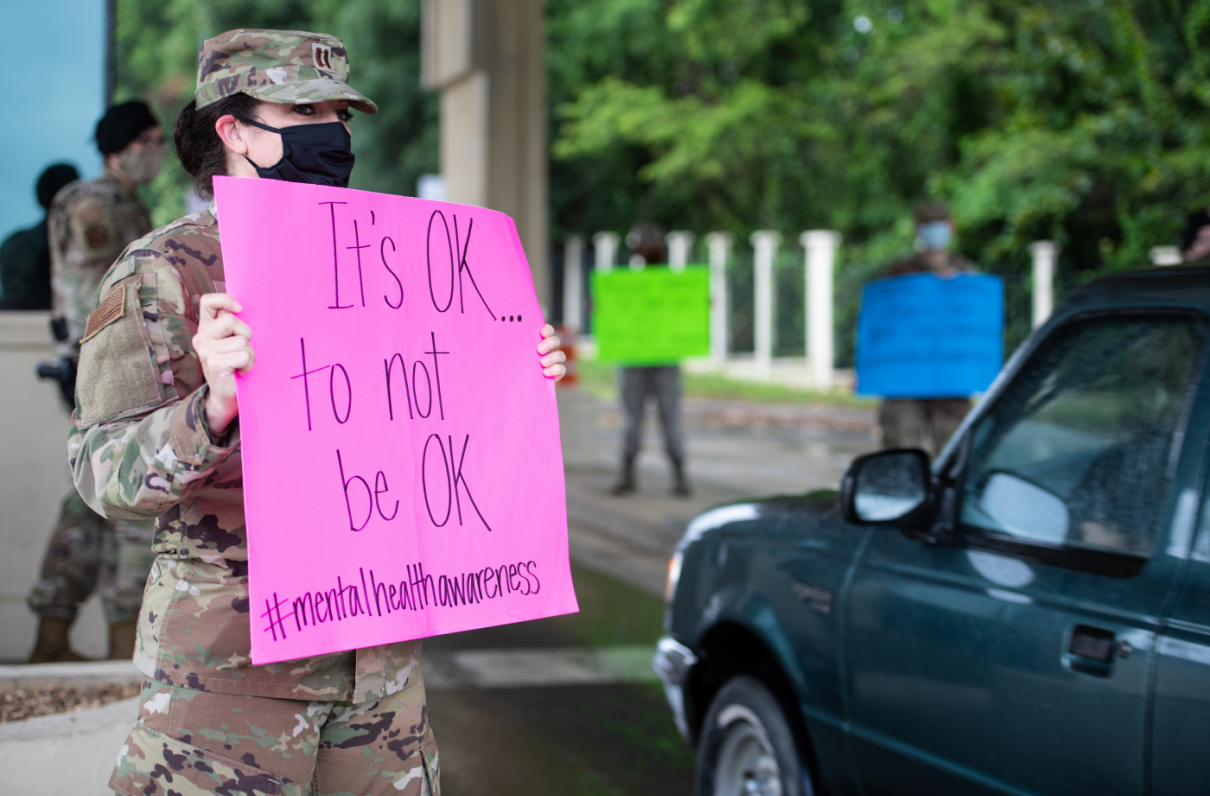The FY 2022 National Defense Authorization Act (NDAA), signed into law Dec. 27, includes several important provisions that address one of MOAA’s top priorities – improved access to mental health care for military families.
During meetings on Capitol Hill last year, MOAA raised awareness of a DoD Inspector General report highlighting widespread mental health care delays and barriers to access for servicemembers and military families. We also put forward ideas for improving access and were pleased to see the FY 2022 NDAA includes some of those suggestions as well as other provisions to address mental health care access:
Mental Health Appointment Schedulers Pilot: Consistent with recommendations from the DoD IG report on mental health access, this provision requires a minimum one-year pilot to provide direct assistance with mental health appointment scheduling in both military treatment facilities and the TRICARE network of civilian providers.
[RELATED: Visit MOAA’s New Legislative Action Center]
Telehealth Licensure Flexibility Review: The House Armed Services Committee’s report accompanying its version of the NDAA includes an Item of Special Interest directing DoD to produce a report to Congress on the feasibility and estimated cost of making permanent certain licensing flexibilities allowing interstate telehealth appointments with TRICARE-authorized providers. MOAA believes licensure flexibility has the potential to improve access to care and continuity of care, particularly for mobile military families. While Items of Special Interest are not legally binding, agency officials generally regard them as congressional mandates and respond accordingly.
Report on Impact of Mental Health Copay Increases: TRICARE copayments for mental health visits and physical, speech, and occupational therapy visits jumped dramatically in 2018, and military families and retirees report the higher copayments have created a barrier to access. To evaluate the impact of these increases, both the House and Senate Armed Services Committees included report language directing DoD to conduct an analysis comparing utilization rates of mental health visits and physical, speech, and occupational therapy visits pre- and post-increases.
Increasing Mental Health Providers in Military Treatment Facilities (MTFs): The House Armed Services Committee report directed DoD to review how to expand the Health Professions Scholarship Program to increase the number of mental health-related scholarships granted, with the goal of increasing the pipeline of mental health providers. It also required reviews of special and incentive pays to maximize the retention of active duty mental health providers and potential increases in General Schedule (GS) paygrades for mental health providers working in MTFs.
MOAA appreciates the steps Congress has taken to address mental health care access challenges within the military health system and will leverage findings from the pilot and reports to Congress as we continue our efforts on this issue.
MEDIPLUS® TRICARE Supplement
Works hand-in-hand with your Select or Prime Plan. Count on valuable protection.

